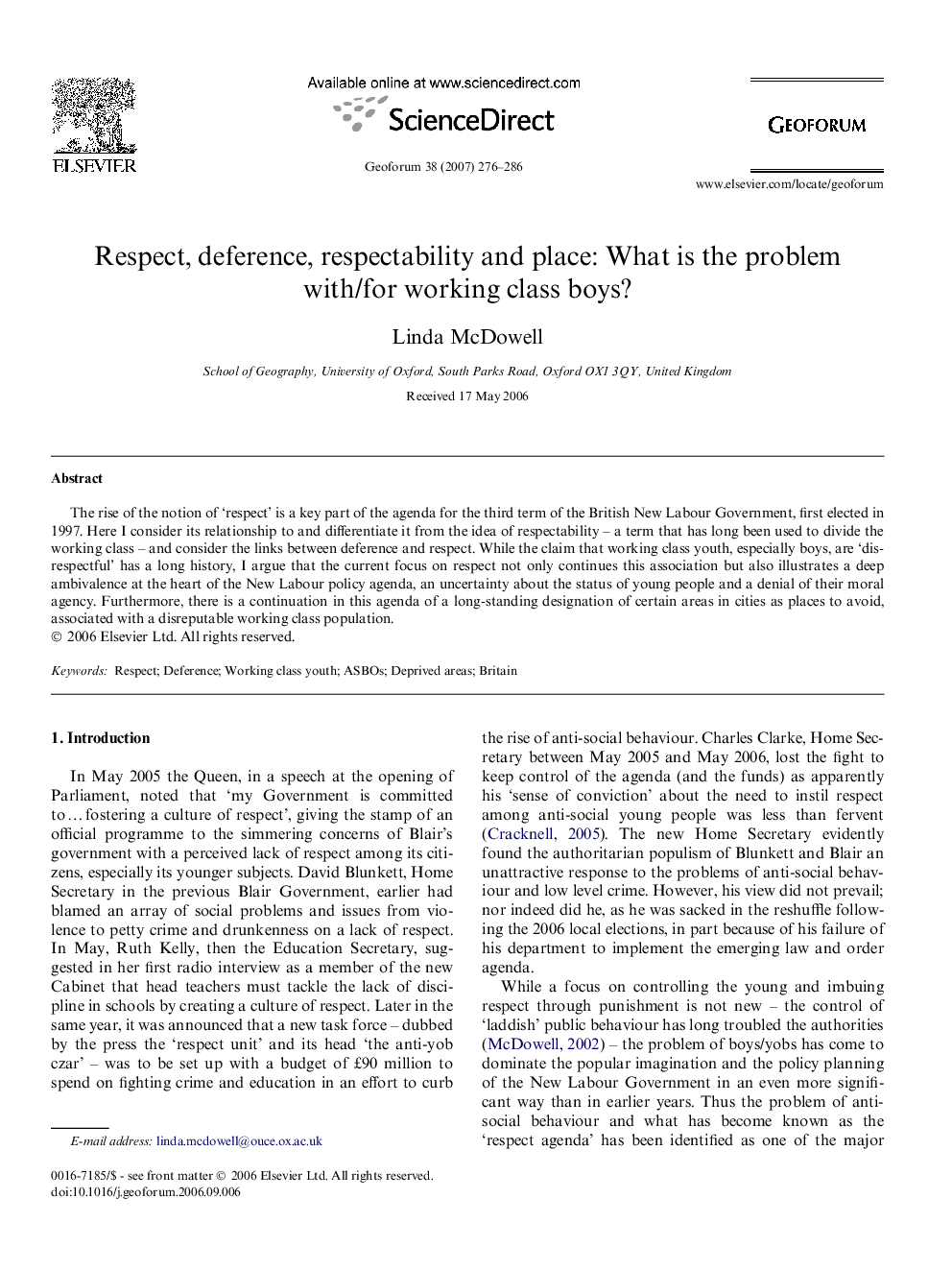| Article ID | Journal | Published Year | Pages | File Type |
|---|---|---|---|---|
| 5075089 | Geoforum | 2007 | 11 Pages |
Abstract
The rise of the notion of 'respect' is a key part of the agenda for the third term of the British New Labour Government, first elected in 1997. Here I consider its relationship to and differentiate it from the idea of respectability - a term that has long been used to divide the working class - and consider the links between deference and respect. While the claim that working class youth, especially boys, are 'disrespectful' has a long history, I argue that the current focus on respect not only continues this association but also illustrates a deep ambivalence at the heart of the New Labour policy agenda, an uncertainty about the status of young people and a denial of their moral agency. Furthermore, there is a continuation in this agenda of a long-standing designation of certain areas in cities as places to avoid, associated with a disreputable working class population.
Related Topics
Social Sciences and Humanities
Economics, Econometrics and Finance
Economics and Econometrics
Authors
Linda McDowell,
